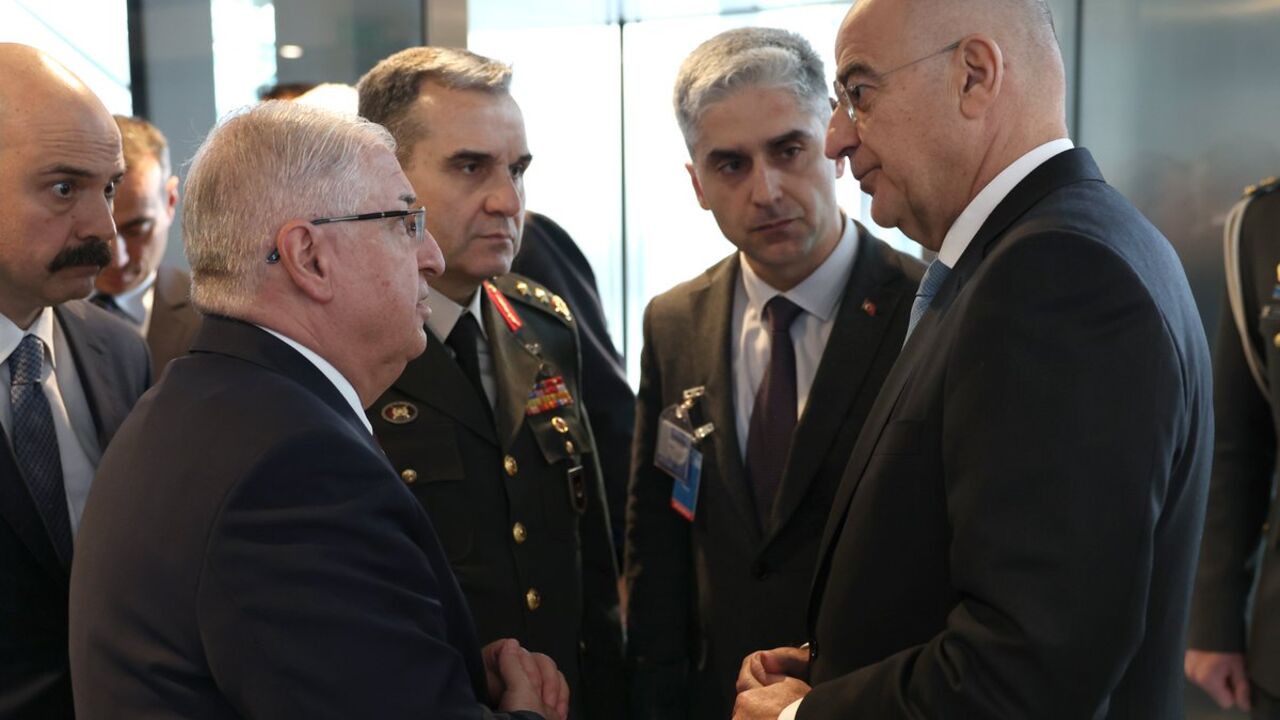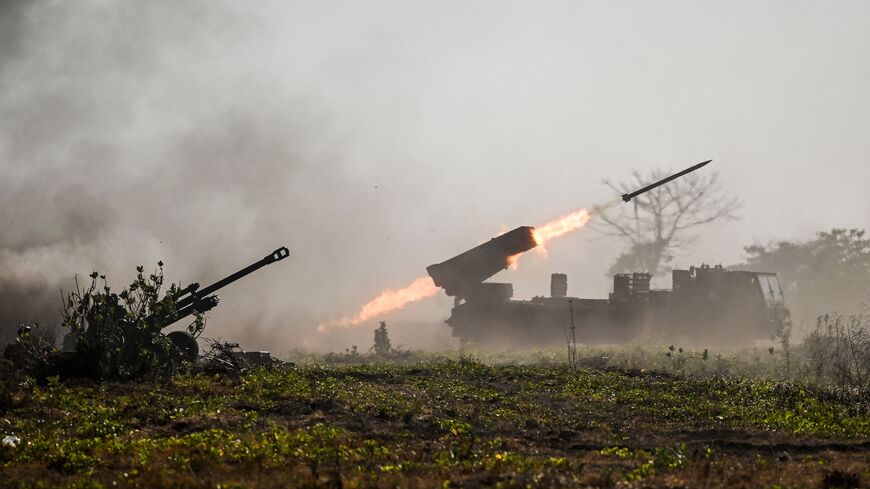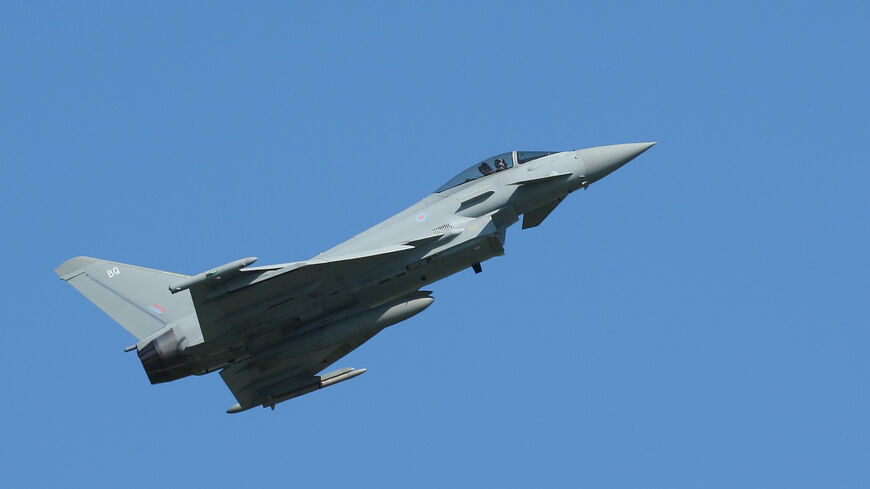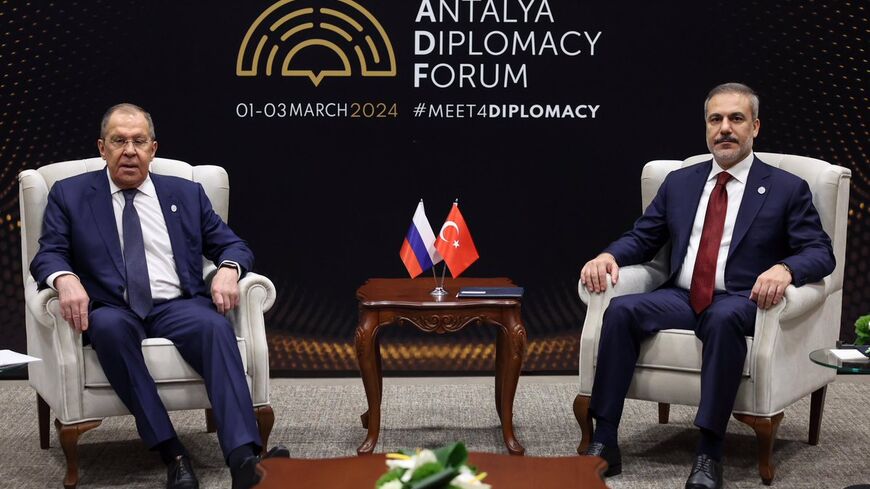Turkey, Greece formally join German-led defense shield project
Turkey reportedly sought to join the initiative, announced by Berlin in 2022, earlier but didn’t receive an invitation.

ANKARA — Turkey, along with its Aegean frenemy Greece, on Thursday formally joined a German-led defense initiative aiming to set up an integrated European missile defense system.
Turkish Defense Minister Yasar Guler described the European Sky Shield Initiative (ESSI) as an “important step towards fulfilling NATO's necessities,” speaking after the signing ceremony held on the sidelines of a NATO summit in Brussels.
“We are ready to contribute to this initiative with our wide range of national resources,” Guler added.
Following the signing ceremony on Thursday, Guler also held brief talks with his Greek counterpart, Nikos Dendias, the Turkish Defense Ministry said.
Germany’s chancellor, Olaf Scholz, announced the initiative in 2022, shortly after Russia’s invasion of Ukraine, which will reach the two-year mark next week, in a bid to establish an integrated short-, medium- and long-range missile system for Europe.
The initiative will allow the purchase of non-European missile systems including US-made Patriots as well as Israeli Arrow aerial defense systems, according to the EU's defense body, European Defence Agency (EDA).
Including Turkey and Greece, the number of European countries that joined the project reached 17, NATO said. Among them are Austria and Switzerland, which have historically maintained military neutrality.
France, meanwhile, opposes the project on the grounds that it will allow non-European procurements, instead pressing for a consortium that would consist solely of European-manufactured missile systems.
Prior to Turkey joining the ESSI, Turkish President Recep Tayyip Erdogan visited Berlin in November, during which the two sides discussed defense cooperation.
According to Sven Arnold, a visiting research fellow at the German Institute for International and Security Affairs, Turkey wanted to join the project earlier, but the presence of Russian S-400 missile defense systems may have been an obstacle.
“For now, the European Sky Shield Initiative is a rather political one aiming to fill the capability gap in the ground-based air defense (GBAD) domain through the acquisition of off-the-shelf systems. Its operational added value is yet to be demonstrated," he told Al-Monitor. “From a German perspective, it makes sense to have more allies on board and to have a geographical continuity from the Baltic Sea to the Black Sea,” he added.
But he is also cautious about the presence of the S-400s in Turkey.
“Berlin’s intention is to integrate the initiative into NATO’s IAMD (Integrated Air and Missile Defence). But this might be even more challenging with additional non-NATO systems.”
Turkey deployed S-400 batteries into the country in 2019, but the missile defense system has yet to be operational. Greece also has the Russian-made S-300s but has signaled that it was ready to give up the system, as it is seeking to acquire US-made Patriots.
While Ankara has not announced an intention to abandon the S-400s, Arnold believes that the joint integration of Turkey and Greece might have to do with NATO trying to adopt a balanced policy toward both of its member states that have had fraught relations with one another. "Maybe there was a deal that if one country joins, the other joins as well.”
The two Aegean neighbors saw military escalations between 2019 and 2023 over conflicting territorial claims in the Aegean sea. Yet the NATO allies got bilateral ties back on track last year and agreed to resolve their historical disagreements through dialogue.
Another explanation for Germany's change of heart might lie in the negotiation between Turkey, NATO and Sweden for the Swedish accession to NATO.
Dropping its almost two-year objections to Sweden’s membership in the alliance, Turkey ratified the Swedish accession last month.
“There should be no restrictions, barriers or sanctions to defense trade and investment among allies. We will work towards eliminating such obstacles,” read a trilateral statement signed between three parties in July on the sidelines of the NATO’s leaders summit in Vilnius.







